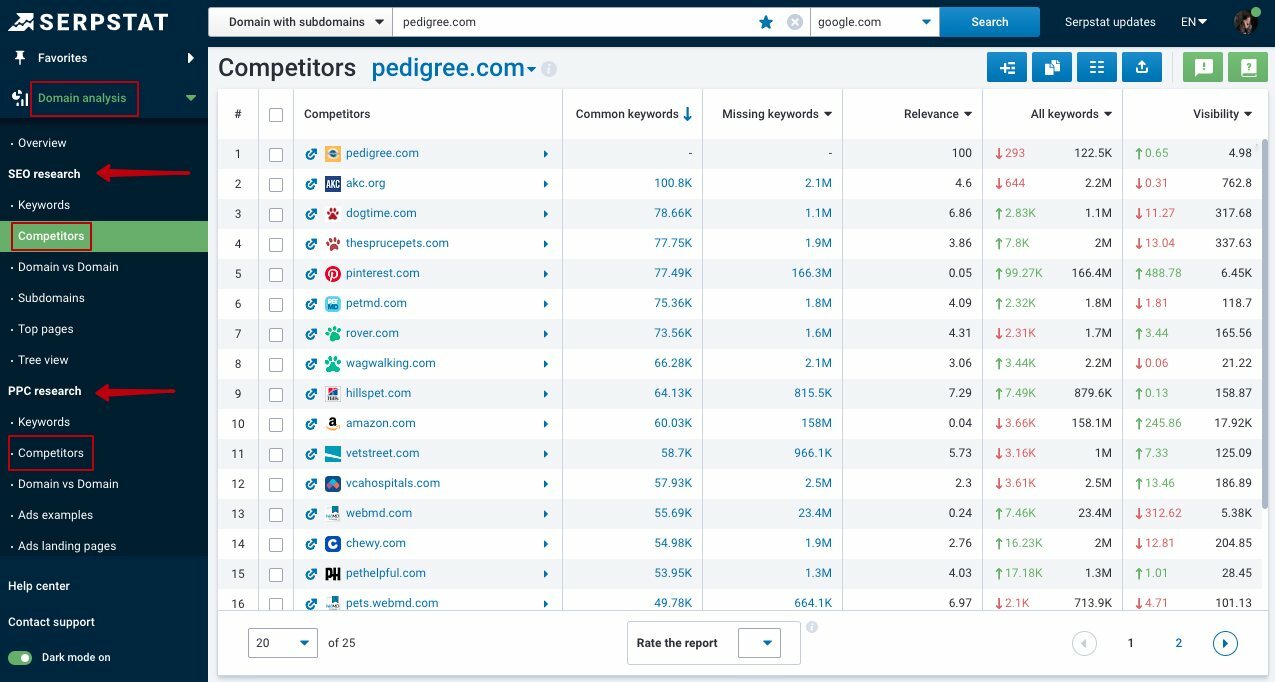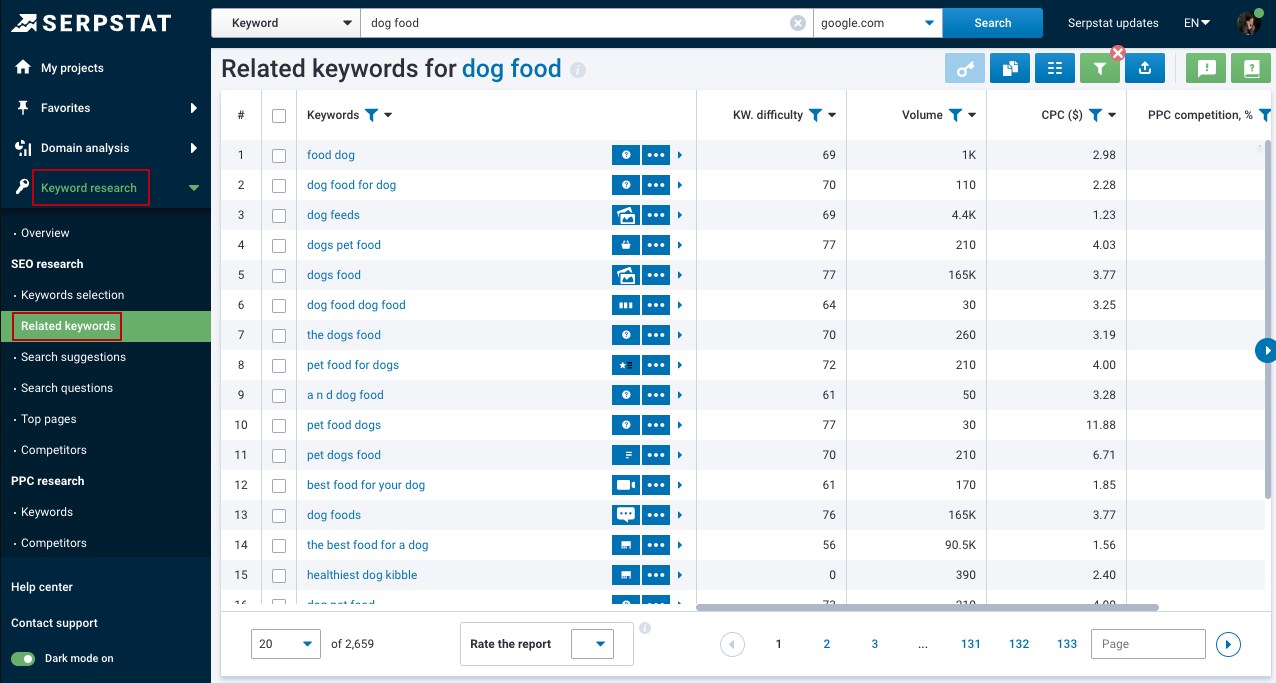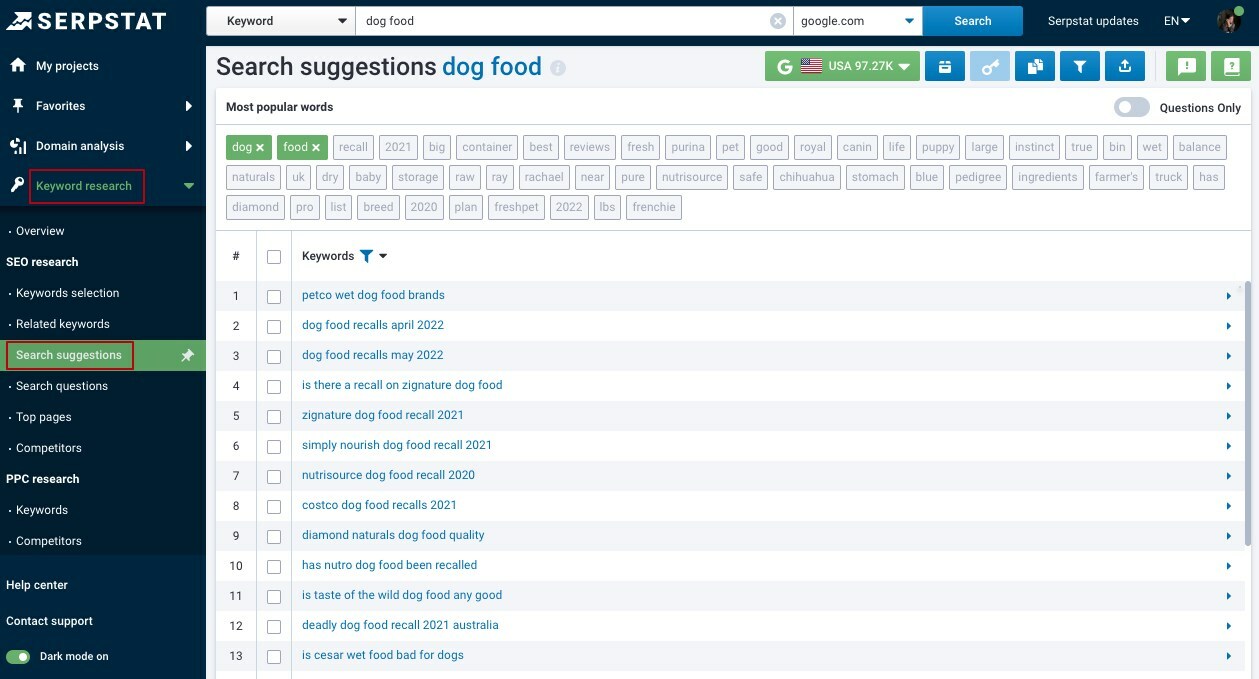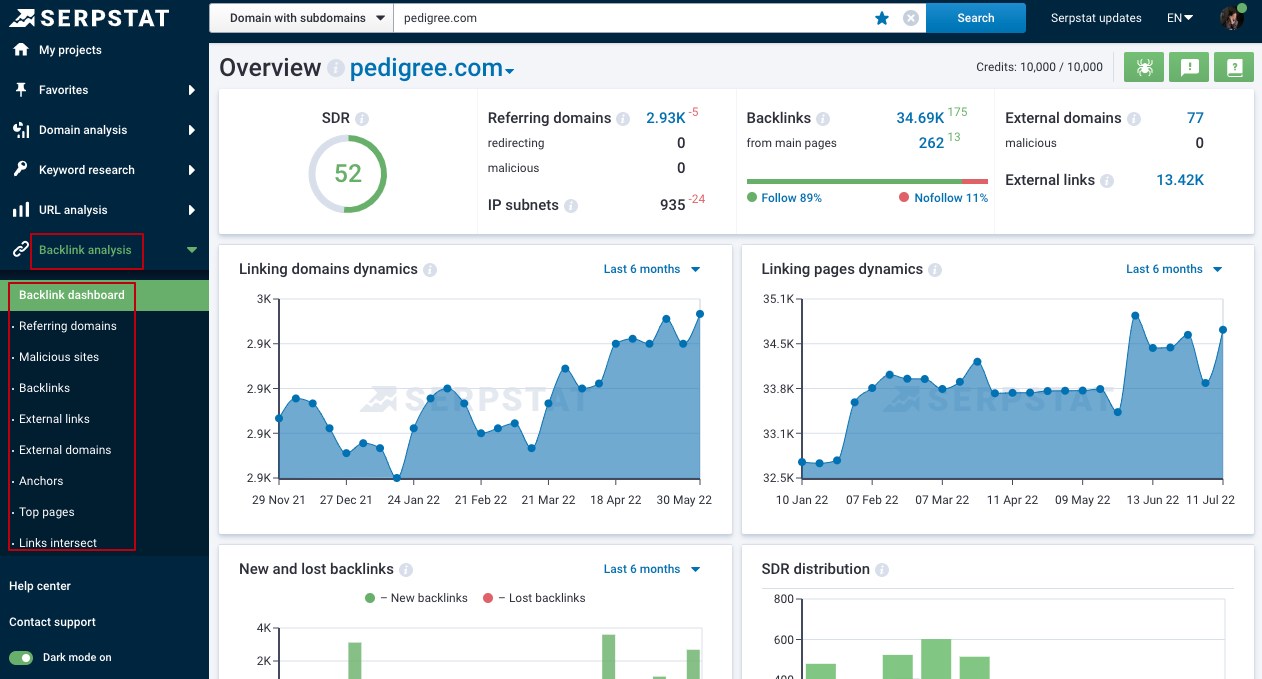Start Exploring Keyword Ideas
Use Serpstat to find the best keywords for your website
How to Boost On-Page SEO Like a Pro

According to a 2021 survey by Statista, 32.8% of the respondents said that on-page elements like meta titles and descriptions impact search rankings significantly.
On-page SEO is vital because it helps Google understand every piece of content on your website, improving your rankings. In this article, we'll take a closer look at the importance of on-page SEO and how you can use it to optimize your website content and blog posts like a pro.
2. Why Is On-Page SEO Important?
3. Tips to Boost Your On-Page SEO Like a Pro
- Format Headers Properly
- Create High-Quality Content
- Optimize Page Titles
- Improve Meta Descriptions
- Enhance Images
- Use Internal Linking
- Add Authoritative External Links
- Test Mobile Responsiveness
- Optimize Page Speed
- Update Older Pages
Summary
1. What Is On-Page SEO?
In addition to content, on-page SEO includes other page-specific components like headings, title tags, internal links, and keywords. It’s more complex because it considers HTML and site architecture elements.
2. Why Is On-Page SEO Important?
As per a Google report, they ran 800,000 experiments and updated the search algorithm more than 5,000 times. For this reason, you need to follow all the guidelines and optimize your site to make it discoverable by Google.
On-page SEO tells search engines everything about your website and how each page provides value. Search engines pick websites based on the keywords used for ranking and indexing. Moreover, on-page SEO is entirely up to you: you can decide each page's topic, goal, and target audience. You can make changes and guide the search engine to the keywords you want the site to rank for.
3. Tips to Boost Your On-Page SEO Like a Pro
#1: Format Headers Properly
These headers, also known as body tags, organize your content for the readers and distinguish relevant and valuable content. Multiple headers make the content readable, improving the overall user experience.
Add essential keywords in your headers and subheadings to help Google understand the page's content. You can incorporate your primary keywords into H1 and use related phrases and keywords in the subheadings.
#2: Create High-Quality Content
A 2021 report by HubSpot shows that 82% of the marketers surveyed actively invest in content marketing because that's what attracts the consumers to the website.
Ensure the content you serve matches the search intent: it can be informational, navigational, commercial, or transactional. Google ranks content that solves the searcher's problem much higher than content that does not.
One of the ways to create high-quality content is by including relevant keywords. In addition, you should have original, unbiased, well-researched, and unique content. In addition, you can check your competitors' content to see the keywords they use most and find ways to outsmart them.
This is where you can review all your competitors' keywords in organic and paid search, as well as analyze all the points that make their top-ranking pages successful.
- "Related Keywords" report represents all search queries that are semantically related to the searched keyword.
- "Search Suggestions" shows the queries offered to users under the search bar.
Overview the most popular keywords and improve your content using this tool with a great variety of reports:
#3: Optimize Page Titles
A compelling title incorporates the primary keyword as naturally as possible. You can add the keyword at the beginning of the title tag to improve rankings.
Furthermore, your title should be of the right length, about 50-60 characters, for better display on the search engines. You can also include your brand name to improve the click-through rate, especially if people are familiar with your brand.
#4: Improve Meta Descriptions
An ideal meta description also has the keyword phrase and compelling sentences. According to a post by Serpstat, the meta description should be 150-160 characters for the page to be optimized. You should also include the keyword phrase and avoid alphanumeric characters.
#5: Enhance Images
One of the ways to optimize is by compressing the images, which prevents your website and pages from slowing down during loading.
According to Serpstat, optimization of images includes adding a description and providing alt text for the images. This is vital because Google now delivers more image-based results to your consumers.
#6: Use Internal Linking
#7: Add Authoritative External Links
External links are essential when adding a statistic or quote from someone else. Use descriptive keywords that you want to rank in the anchor text to make it relevant. When adding external hyperlinks, ensure that it aligns with your web page's content.
This is where you can check the following info:
- the referring domains;
- quality of the backlinks (DA Score);
- no-follow/do-follow links;
- unique referring IP addresses;
- malicious sites;
- countries and locations.
#8: Test Mobile Responsiveness
Ensure that you choose a website hosting service, site theme, and design that’s readable on mobile.
To make it easier, you can also use Google’s Mobile-Friendly Test tool to check if your website meets these criteria. Mobile responsiveness can be improved by adjusting the site and early fixing potential problems.
#9: Optimize Page Speed
Google's algorithm can detect if your page is loading slowly or abnormally. If your visitors don't stick around for long, your conversions will be low, and Google will lower your rankings.
Your website could slow down due to different issues in the background. However, you can track website changes for content edits, pixel changes, network activity, or HTML changes and address them to get your website back on track. In addition, you can monitor the speed using Google's PageSpeed Insights Tool.
#10: Update Older Pages
You can optimize these older pages by adding internal links to make them more discoverable, sharing them with readers and subscribers, and tracking keywords. You can also delete older and irrelevant posts that don't bring you organic traffic.
What Is the Key Difference Between On-Page and Off-Page SEO?
- On-page SEO optimizes the specific web pages to improve visibility by paying attention to page-specific components such as content, headers, internal links, and images.
- Alternatively, off-page SEO consists of everything outside the website, including link building, brand mentions, social media, podcasts, and reviews.
Summary
Before promoting your website to others using off-page SEO techniques, ensure that it's optimized for search engines.
Setting a proper on-page foundation marks the beginning of a successful SEO strategy!
Speed up your search marketing growth with Serpstat!
Keyword and backlink opportunities, competitors' online strategy, daily rankings and SEO-related issues.
A pack of tools for reducing your time on SEO tasks.
Discover More SEO Tools
Backlink Cheсker
Backlinks checking for any site. Increase the power of your backlink profile
API for SEO
Search big data and get results using SEO API
Competitor Website Analytics
Complete analysis of competitors' websites for SEO and PPC
Keyword Rank Checker
Google Keyword Rankings Checker - gain valuable insights into your website's search engine rankings
Recommended posts
Cases, life hacks, researches, and useful articles
Don’t you have time to follow the news? No worries! Our editor will choose articles that will definitely help you with your work. Join our cozy community :)
By clicking the button, you agree to our privacy policy.





